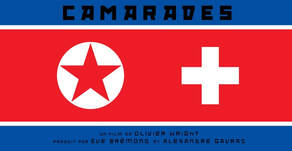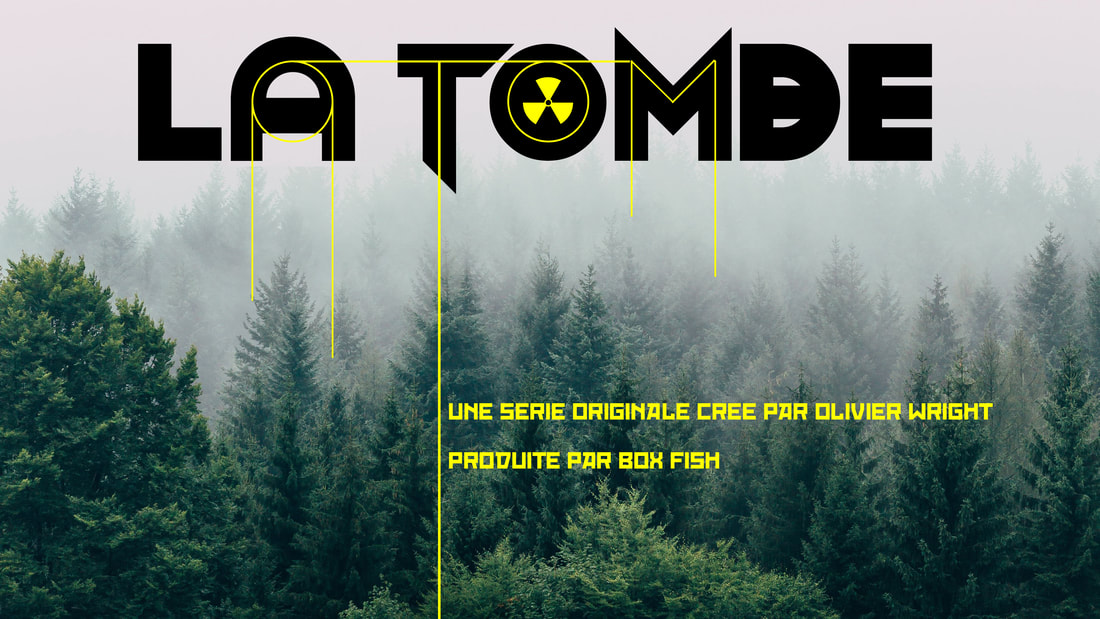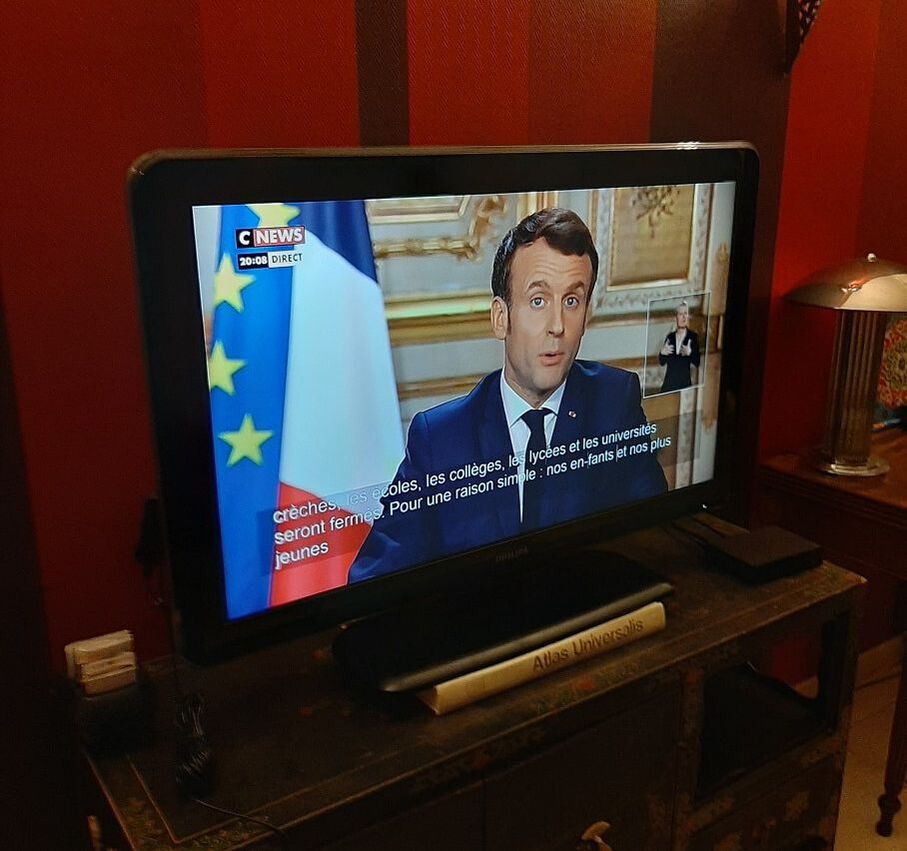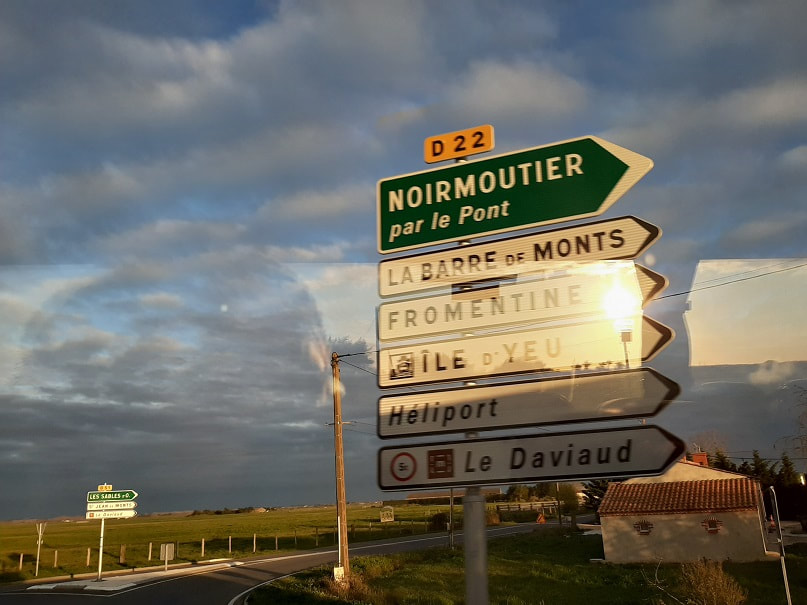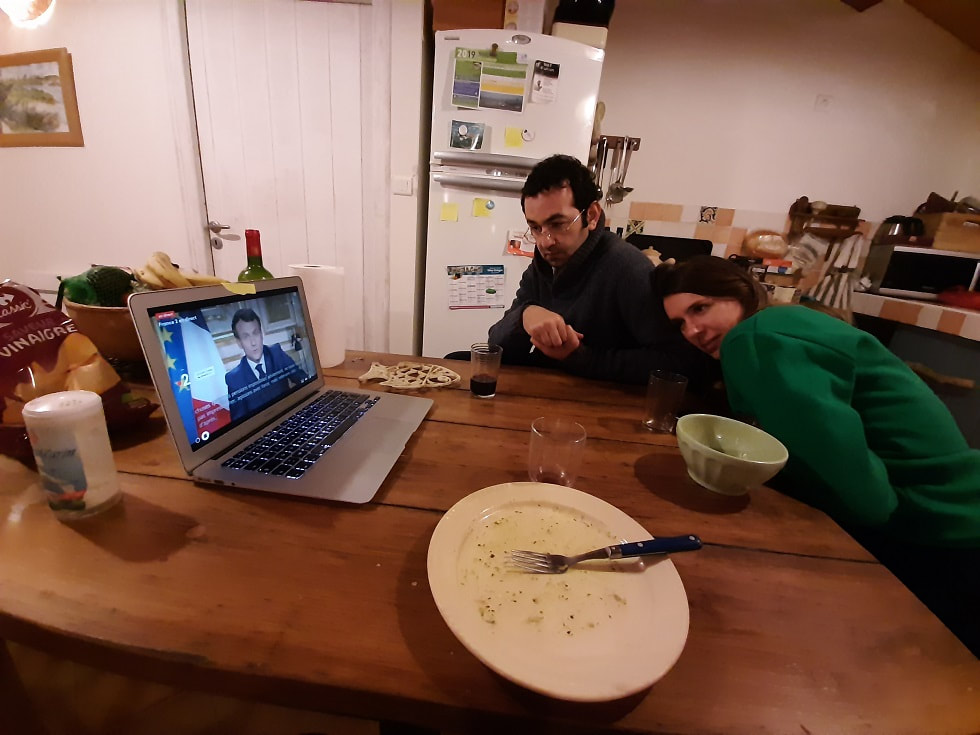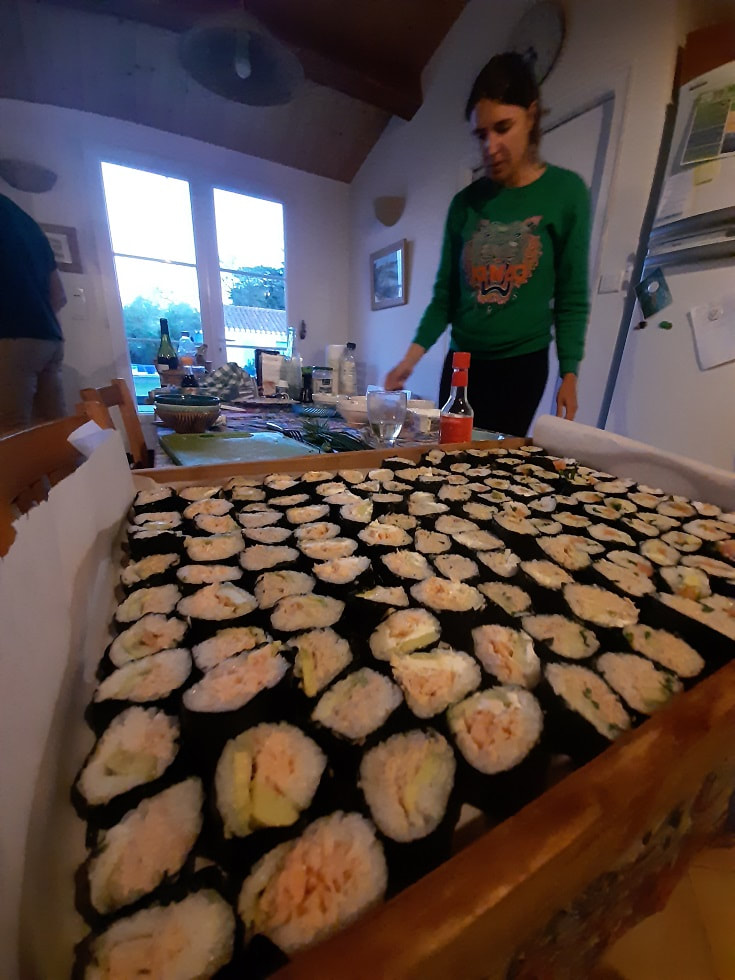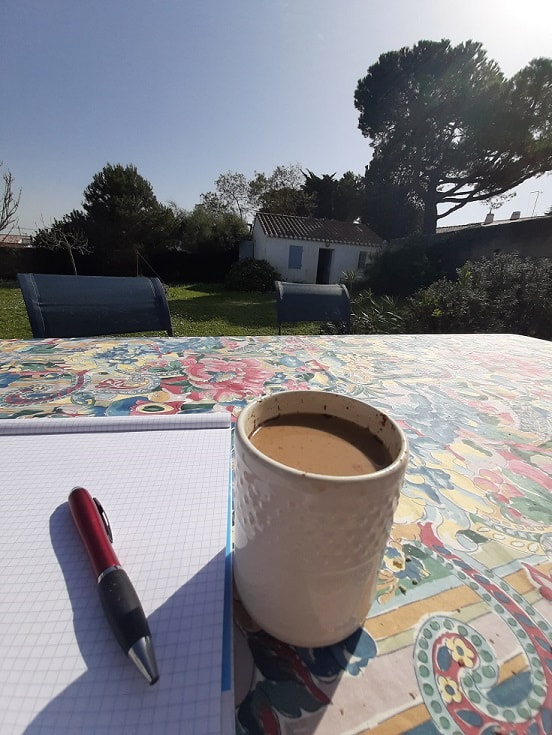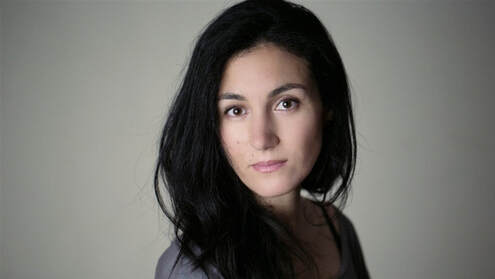Psi
Menu
VI - The Perfectionism Trap
Chapter 31
Narrator Attempt No. 3: Myriam Ajar
(Sept - Nov 2020)
Narrator Attempt No. 3: Myriam Ajar
(Sept - Nov 2020)
|
At the beginning of 2020, psi had legitimately become a major problem in my life and something I didn’t even want to do anymore. I’d completely forgotten about the ongoing pursuit of Diane Kruger and Juliette Binoche, which hadn’t gone anywhere anyway. I called my friends Isabelle and Peter to call it off once and for all, to save myself another double whammy of rejection. All this negativity and sense of defeat around psi led me at that time to focus on two other projects I was developing.
On the one hand, I’d written a short film called Camarades, a dark comedy about Kim Jong-Un’s hidden adolescence in Switzerland. Eve Brémond (the producer who helped me with the SAG application) liked the screenplay and introduced me to French producer Alexandre Gavras (son of director Costa Gavras), who’d recently won the César (the French equivalent of the Oscar’s) for best picture for Jusqu’à la garde (Custody, in English). Gavras had been impressed by psi and offered to team up with Eve to coproduce Camarades. We were right in the middle of the financing phase and I was excited about the prospect of directing my first “properly produced” film. On the other, I’d written a treatment for a sci-fi TV series called La Tombe (The Tomb), about deep geological repositories of nuclear waste. Eve optioned it and we were developing it together with another screenwriter. The project was later supported by a development grant by the CNC. It was ironic how the CNC was the same government office that had turned down one of my short films 7 years ago and contributed to fueling my desire to make psi on my own terms. The progress I was making with these two new projects was providing me far more excitement and self-fulfillment than psi, which just kept looming like this giant pile of failure and disappointment that everyone was pressuring me to finish and showcase to the world – somehow. To make things worse, I’d screened psi a few times for different groups of friends and each time I kept noticing new flaws, taking notes about re-edits and just growing the pile of tasks I would ultimately have to complete before being ready to release it. Obviously, the prospect of diving back into Premiere Pro was so unbearable I just kept pushing it back.
This was, of course, all in my head. Most people kept saying "It's fine as it is. Just get it done already." And they were probably right. But I couldn't. A global fishbowl: Covid.
And then in March 2020, something happened that changed everything, not just for me, but for the whole world: Covid-19. When French President Macron announced a national lockdown starting on March 17, I was visiting my Mom in Pornichet, on the west coast. I still had 24 hours of free movement and headed to the nearby island of Noirmoutier, where a friend of mine, Yazeed, a Palestinian I’d met in Jerusalem and who’d since married a French journalist called Marie, offered me to stay with them.
The following few weeks were a tragic moment in the lives of many, who fell ill, lost loved ones, or suffered psychologically, socially and economically. Comparatively, I was fortunate enough to enjoy a safe and uneventful lockdown. But this surreal experiment did provide me with one unforeseen and welcome side-effect: it allowed me to slow down and take a break. To put myself on pause and mute the world.
This may be privileged, but studies have shown that around the world, many people reported the same. And there's no doubt that without this globally enforced interruption, I wouldn't have even began to stop. I’ve always had a hard time taking time for myself. Just taking time off, actually. Working as a freelancer, without a boss or fixed hours, I’ve always set my own goals and managed my own time. And while in many respects I saw this as an advantage, it had gently turned me into a functioning workaholic. Because I did translations in order to pursue my creative aspirations, and that these aspirations always required more efforts to be achieved, I had a never-ending stream of work I could attend to: a translation to finish, a screenplay to write, a new project to develop, psi to keep chipping away at. Consequently, any time spent not working felt like time wasted, standing still, not getting any closer to my goals. So I always kept going, filling up my schedule with more work. This meant that I would only really allow myself to take “time off” if I was sick, on a plane or really felt I had achieved something beforehand. The lockdown was the first time I was actually forced to stop. There were no more translations coming in, my other film projects were on hold and I’d left my hard drives in Paris, meaning I couldn’t work on psi even if I wanted to. My options were limited to whatever was present there and then. And crucially, with the global lockdown, there was this sense that everyone, everywhere, was also forced to stop. And this gave me a huge sense of relief. In normal times, we're all running on this impression we’re in a giant collective race to the top, and that whenever you take a breather, others are overtaking you. With the lockdown halting everyone, I could stop racing too without feeling guilty or lazy or not competitive enough. And so after the first few days where I panicked like a lion in a cage, I just let things go and found myself enjoying cooking, playing boardgames, gardening, sitting in the sun - things I never do. I also dove into a project I’d previously been postponing because it didn’t serve any of my immediate professional priorities: I wrote my first play, based on my short film “Ukulele”. And I hadn’t felt that much pleasure writing something in a long time. It’s ironic how being in lockdown made me feel so liberated, how the drastic limitation of possibilities allowed me to focus on fewer, but more essential things. In this sense, I experienced, in a very real way, one of the main points of psi: less is more, and sometimes better. As Barry Schwartz would put it, I had benefited from having a fishbowl. When the lockdown was finally lifted almost 6 weeks later, I felt like I had come out of rehab, like a “modern life rehab.” I had detoxed from all the pressure of achievement, purged myself of the weight of expectation. And as I got back to Paris in May 2020, I felt rejuvenated and ready to tackle psi head-on.
Casting the right actress
The first mission was – still – the narrator. I was done aiming beyond my reach and wanted to just take control of the project again. With the “famous actress” factor out of the equation, there was now just one criterion I wanted to secure: the actress had to have a foreign accent when speaking in English. This had always been a pet-peeve of mine, one I was willing to give up on if I managed to cast an A-list actress, but not one I was going to compromise on now. Why? I’ve always had a love of accents, both in real life and in films. I first really noticed this while watching Werner Herzog’s documentaries. His heavy Austrian accent, coupled with his slow-paced, deep, broken voice, infused his narration with a kind of profound, quirky wisdom. He could read a shopping list and make it sound like revelation. After thinking about this a bit more, I’ve broken it down into three main reasons and, for the sake of it, I’ll sketch them out here:
These three factors combined (the intellect bias, the leniency bias and the attention bias), I believe, contribute to making characters speaking a language which is not their native tongue especially stimulating. So, in the summer of 2020, I got down to business: I posted an open casting-call on various websites in Paris, specifying that I was looking for a female actress who spoke fluent English with a foreign accent, preferably French, and whose tone of voice and manner of speech can convey multiple qualities: wisdom as well as wonder, assurance and vulnerability, to challenge and guide and inspire the protagonist - and by extension, the audience. I provided a short sample of the narration for candidates to record and specified this was a paid gig. I didn’t really know what to expect as I’d never sent out a casting call before, but within a few days, my inbox was flooded with over 400 auditions. It took me a good 3 weeks to listen to them all (especially as they kept rolling in) and to narrow them down to about 10, to whom I then sent a full screener of the film and asked for a second audio sample. From 400, there was 1...
At that stage, I already had a favorite in mind, and upon testing the final audio samples on the film, my intuition proved to be correct: her name was Myriam Ajar. She had an interesting French accent, a delicate tone of voice, a tempered rhythm, and palpable sensibility. She was spot on. When I contacted her, I realized that the quality of her audition was no fluke: she had watched the film twice already as the story and themes had deeply resonated with her. She also felt a strong kinship to the project as a whole, as she regularly worked on independent, self-produced films and knew all too well how hard it can be to get them over the finishing line. As a result, she really empathized with my situation and wanted me to succeed. In a weird way, with her, I felt psi was in the right hands.
|
|
This turned out to be true to an even greater extent as she prepared for the recording, because she really went above and beyond in her devotion to the character. She made great suggestions about her lines and raised an essential issue about the character’s identity: according to her, the fact the character was a psychologist felt somewhat impersonal and automatically raised superfluous considerations about how the physics of her travels worked - if she’s a scientist travelling to alternate realities, the audience can’t help but want to know more, thus distracting us from the emotional core of her relationship to the character.
And that’s when she suggested an idea: what if, instead of being the character’s psychologist, she was his mother - my mother? Until then I’d never really considered changing the narrator’s identity, mainly because everything was already in place and I just wanted to get it all done. But her suggestion opened my eyes, giving me the desire to actually get creatively invested again and improve the film while I still I could. And her idea was beautiful, so I went with it and re-wrote her character’s lines accordingly. In October of 2020, Myriam and I spent a full day in Julien’s studio in Paris to record her part, and when I got home with her voice on a hard drive, I was pumped up again about the film. In the long hike this project represented, Myriam had helped me out of the gorge I had been lost in for two years and I was now on my way to scaling the ultimate mountain. There was, however, one last peak to climb before getting there... |
<----------- Previous Chapter: Narrator attempt 2: Brit Marling
Next Chapter: Re-shoots & re-edits ----------->
TABLE OF CONTENTS
Next Chapter: Re-shoots & re-edits ----------->
TABLE OF CONTENTS
[email protected]
© COPYRIGHT 2022. ALL RIGHTS RESERVED.
© COPYRIGHT 2022. ALL RIGHTS RESERVED.
